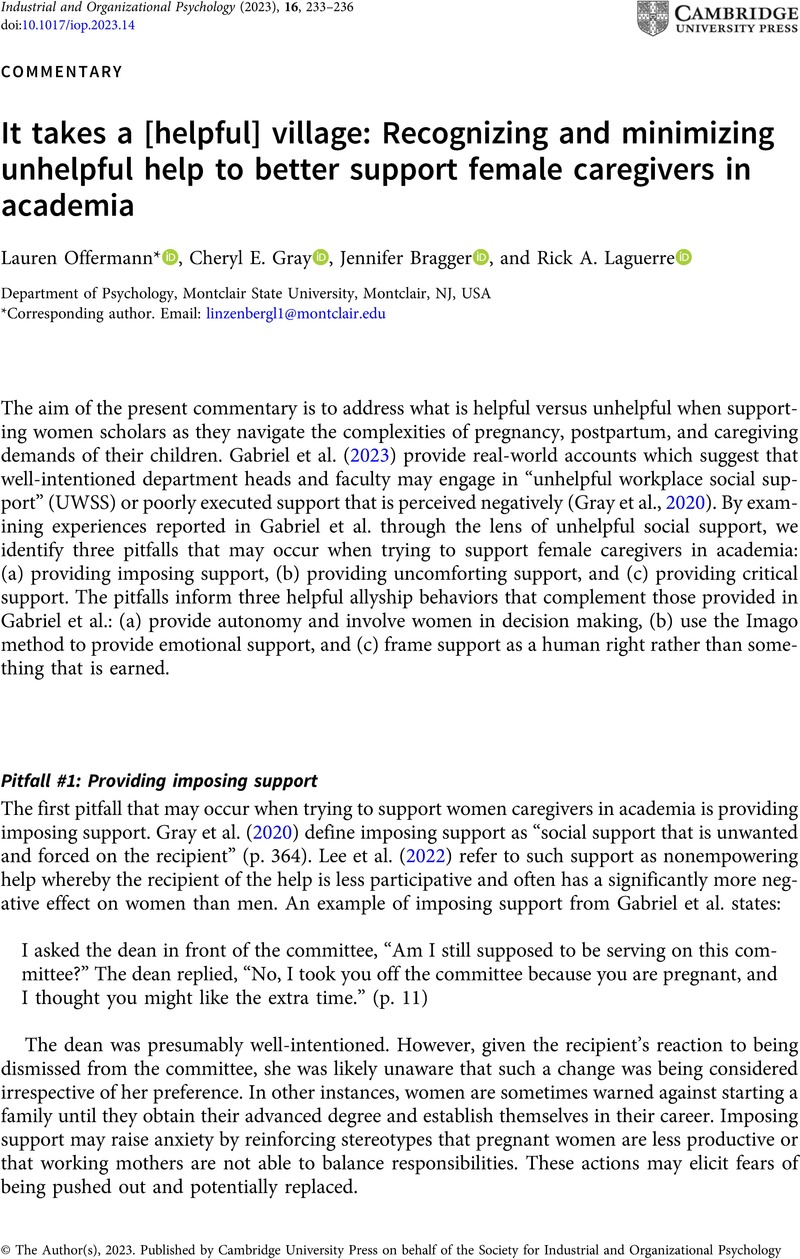Lee, Y. E.,
Simon, L. S.,
Koopman, J.,
Rosen, C. C.,
Gabriel, A. S., &
Yoon, S. (
2022).
When, why, and for whom is receiving help actually helpful? Differential effects of receiving empowering and nonempowering help based on recipient gender.
Journal of Applied Psychology. Advance online publication.
https://doi.org/10.1037/apl0001049
Google ScholarPubMed 